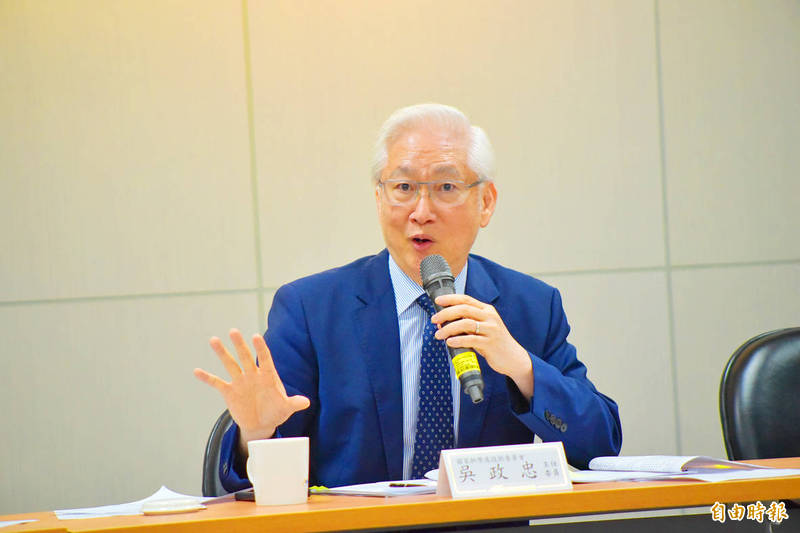《TAIPEI TIMES》NSTC releases draft AI rules for government staff

National Science and Technology Council Minister Wu Tsung-tsong speaks at a news conference in Taipei on Tuesday. Photo: Wu Po-hsuan, Taipei Times
CHANGING TIMES: The draft regulations ban the use of AI for tasks relating to sensitive or classified materials, while privacy is also a key consideration
By Jason Pan / Staff reporter, with CNA
The National Science and Technology Council (NSTC) on Tuesday presented draft regulations covering the use of artificial intelligence (AI) tools by civil servants.
Rapid advances mean AI is being applied to many sectors, and AI chatbot technology has matured to the point that it will greatly impact human society and culture, NSTC Minister Wu Tsung-tsong (吳政忠) said.
Government agencies must start planning guidelines and laws on the use of programs such as ChatGPT and other AI tools, as potential risks and legal disputes, and other ethical issues have already cropped up, Wu said.
Work is under way on a draft AI basic law, he added.
The draft regulations released on Tuesday are titled “Guidelines for the Executive Yuan and its Agencies on the Use of Generative AI,” and are available on the Public Policy Online Participation Network Platform, Wu said.
The guidelines cover rules civil servants must follow when their work involves the use of AI, he said, adding that each agency can formulate its own rules to meet its specific needs.
The draft regulations state that as AI technology is progressing rapidly, NSTC officials would monitor trends and new applications, and would make adjustments as to how their usage should be regulated.
The regulations cover nine major points.
Civil servants responsible for tasks using AI must submit risk-assessment reports, and objectively evaluate their use of AI, which must not replace the staffer’s creativity and viewpoints, and information derived from human interactions.
They are banned from using AI tools for tasks relating to sensitive or classified government materials.
They are prohibited from using AI to collect personal data or to make inquiries about sensitive or classified government materials, data relating to personal privacy, and government and business proprietary information.
All government agencies must be entirely reliant on AI-generated information, and must not use AI directly for administrative purposes or as reference for implementing public policy.
If the use of AI is needed for public service policy administration, the public must be made aware of the resulting products.
Personal data must be protected and digital security measures must be implemented when using AI tools. Those using such tools must adhere to copyright laws, and check for any possible breach of intellectual property rights and individuals’ rights to their image.
Government contractors must follow the regulations.
The regulations would also apply to all state enterprises, public schools, and state-run and state-funded foundations.
The Executive Yuan and its agencies would be required to follow the regulations, and adhere to its measures when formulating their own internal rules on the use of AI.
新聞來源:TAIPEI TIMES

















